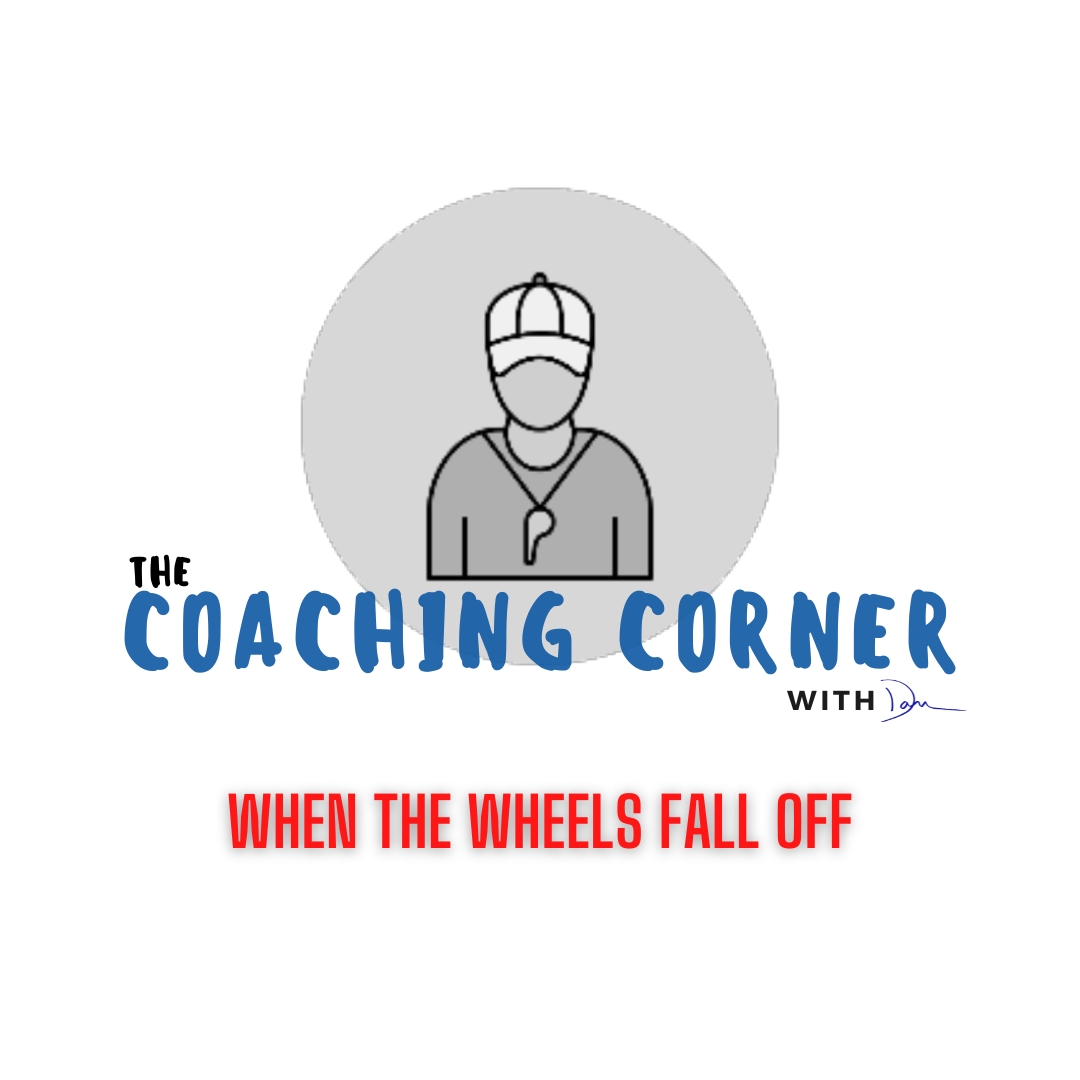As a coach, we have all been there. It doesn’t matter the level or the activity. The best-laid plans fall apart and the “wheels come off”. When those moments happen, coaches tend to have a knee-jerk reaction that could make the situation worse. So, what can we, as coaches, do to help with those moments? The following is my quick process that I have found to work well in those often-chaotic moments.
Step #1 – Breathe
It sounds simple, but it is the step we forget the most. Take a quick minute and center yourself. I suggest 4 deep breaths in through the nose and then out through the mouth with a longer exhale. I fully understand that things are happening in a rush when the wheels start to fall off, but you need to be cognitively at your best to work through it. Take a few seconds.
Step #2 – Technical vs Tactical vs Environmental
This is the meat and potatoes of working through the problem. Is the issue you are having a result of the technical training? What I mean by technical training is the individual skill being trained by the athlete, performer, or worker. Is the breakdown because they can’t perform what you are asking or need? Possibly the issue is tactical. It is not a direct result of a player’s (or workers’) inability to perform, but more a breakdown of a system or scheme. Simply, it could be an issue with the game plan, not those performing it. Lastly, take a look at your environment. It is possible that something unique to the physical space you are in, or the particular time is causing an issue. It may not have anything to do with the ability of your team, or the plan you (and others) have put together. Think “home field advantage” when you are away. I have found that most of the time when something catastrophic happens, it falls in one of these three buckets.
Step #3 – Reworkable or Replaceable
Now that we (hopefully) have a better understanding of what is causing the chaos, we need to look at a solution. Is the problem something that can be fixed within the parameters you currently have (think personnel and time)? Do you have the time and energy to work and fix it with the piece you have? Perhaps the time constraints won’t let you fix it, so you have to replace parts of the situation. There are a lot of times we want a player or teammate to work out, but at this moment, the best option may be a swap. It doesn’t mean things can’t be worked on. It just means that right now, a different path needs to be taken.
Step #4 – Breathe
I know this is a repeat, but it is important that you remind yourself to breathe while this is going on. The tenser we get, the more our critical thinking suffers. Gather the information you need, take a breath, and decide.
Step #6 – Review
Once the changes (or lack thereof) are made, it is important that the process you went through it revisited. This will help not only with the specific challenges you were presented with, but it also makes sure your problem-solving solution is working or at least guiding you. Don’t just make changes then move on after they work or fail. Review the entire process including the specific data. It may save you from repeating the same scenario.
I realize that none of this is Earth shattering or even new to a lot of coaches, but we tend to forget our processes when we need them most. A lot of the chaos that happens with troubles is presented because we do not have frameworks in place to help us through them. I am also fully aware that all of this happens in almost a blink of an eye, during a time out or between games. I have witnessed (or been a part of myself) poor decisions being made because coaches (or myself) didn’t look at the full information set. I substituted a player when the problem was a scheme, we were running. I have scrapped a play because I didn’t think it was effective when it was more about the performance of a player that was holding the playback. I didn’t take the time to recognize what the problem really was. I just panicked and wanted the problem fixed when the wheels fell off…
I hope this helps some coaches!
The Coaching Corner is a blog series that looks to find solutions to the everyday problems that coaches of all levels and activities encounter. If you have an idea for a topic, please e-mail blog@danmickle.com.


